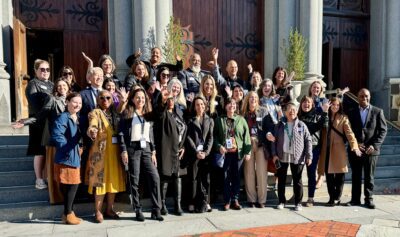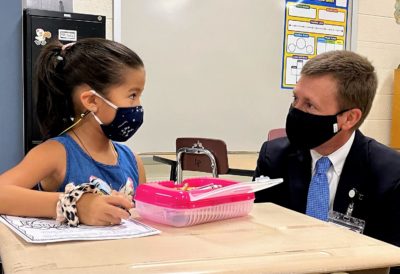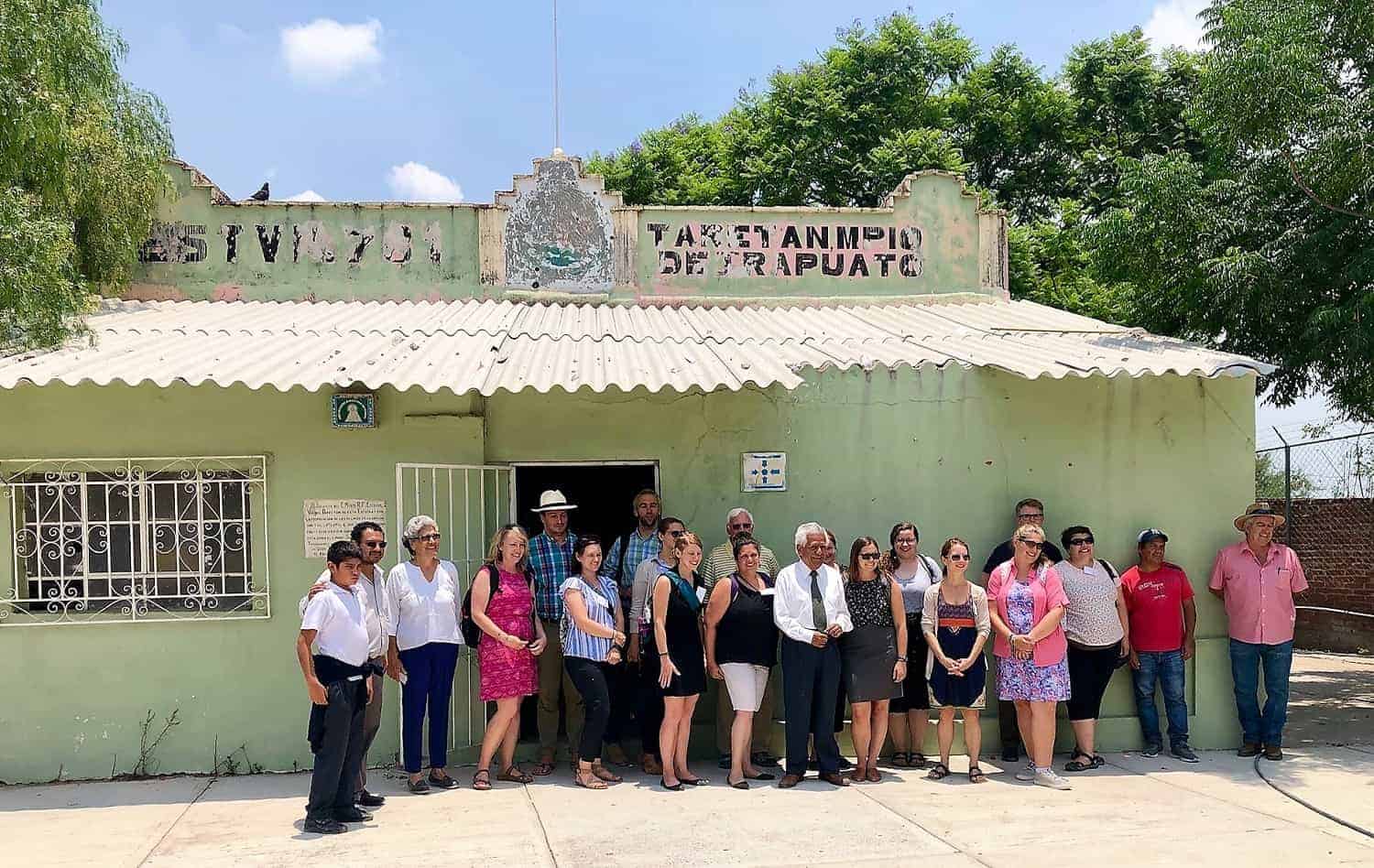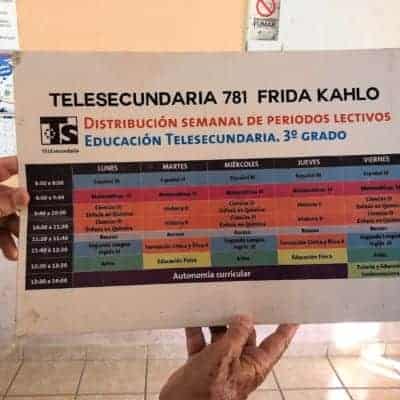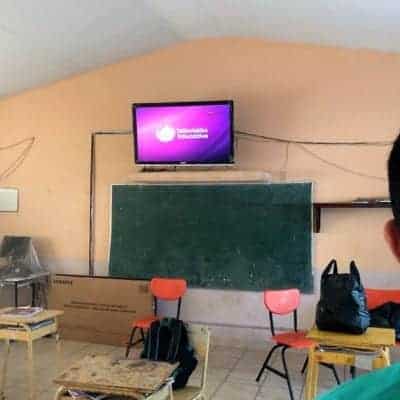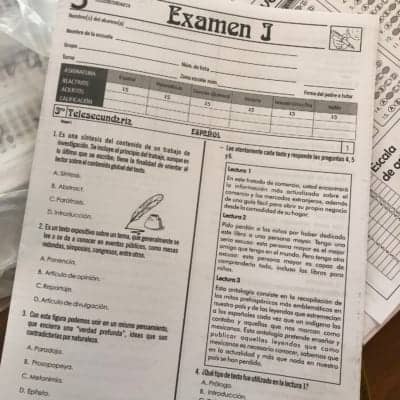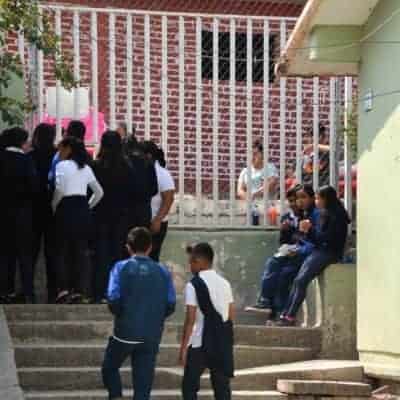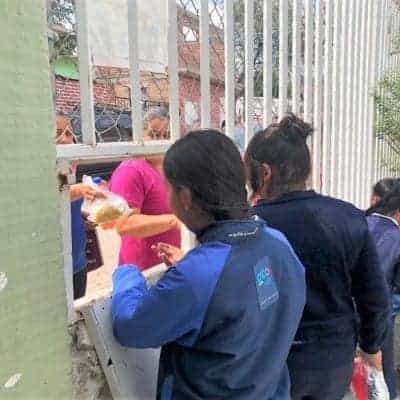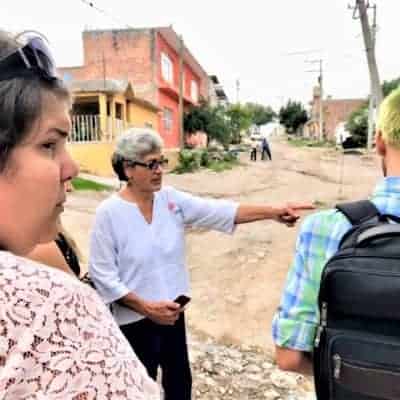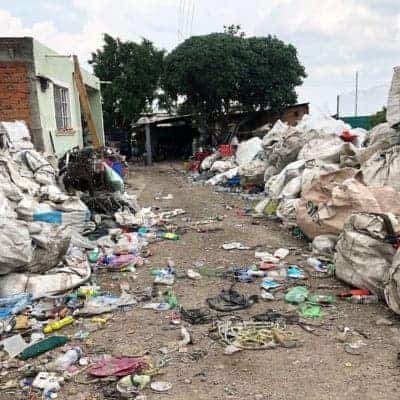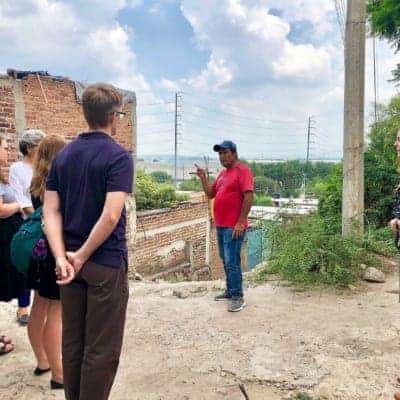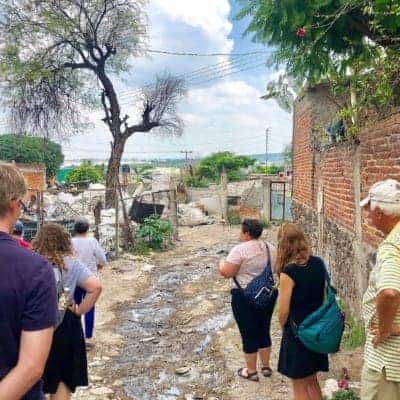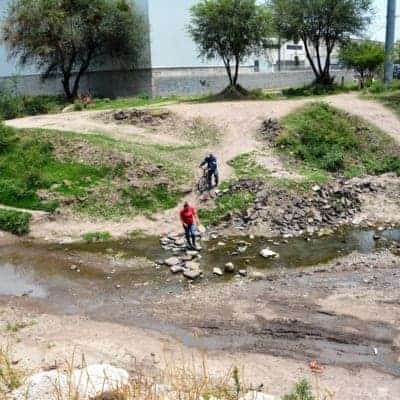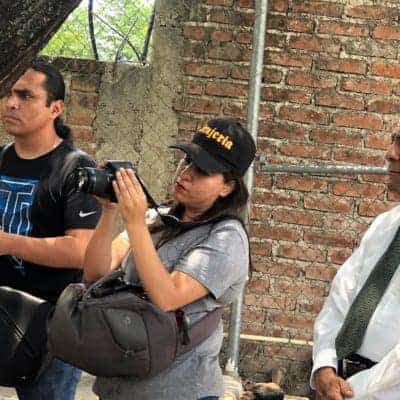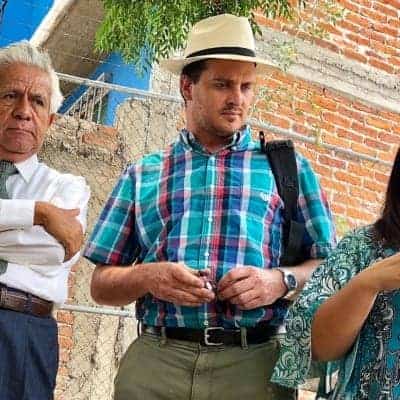“They can’t see the future,” says Adriana Cortés. Cortés is the director of Fundación Comunitario del Bajío, a nonprofit that initiates and coordinates integrated development in Guanajuato, Mexico. Her holistic approach to building communities locally includes economic development, education, access to health care, social development, the environment, and the intangibles of heritage.
The Fundación works with the Frida Kahlo Telesecundaria and the surrounding community of Taretan. “To understand what’s going on in the minds of the students,” Cortés continues, “you have to see the reality of the conditions they live in.”
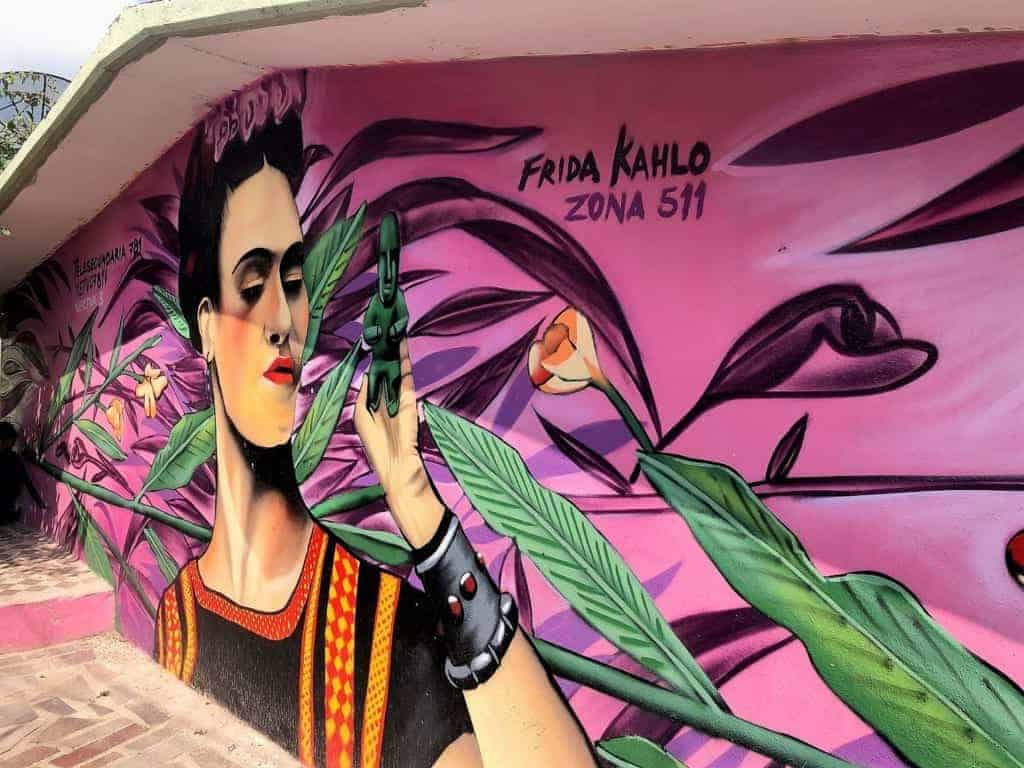
“They need more hope of life.”
The school has 63 students: 23 in what would be our sixth grade, 28 in seventh grade, and 12 in eighth grade. But it is the end of the school year, and in eighth grade, five of the 12 have dropped out during the year. The day we visit, there are six boys and one girl left in the class. Two of the students might go on to preparatory school if they can figure out transportation and other logistics. Another student is considering military preparatory school. Another student would like to go on and has the aptitude, but the family can’t afford the fee of 250 pesos a year – about $13.00.
The students are preparing to take the eighth grade exam — the 3rd year of telesecundaria — and the exam is divided into Spanish, Math, Science, History, Civics and Etiquette, and English.
A small group of our teachers from North Carolina observed instruction in the classrooms and were able to spend time with the students and teachers.
Victor Hugo Mora Rojas is the director of the school — and he teaches sixth grade.
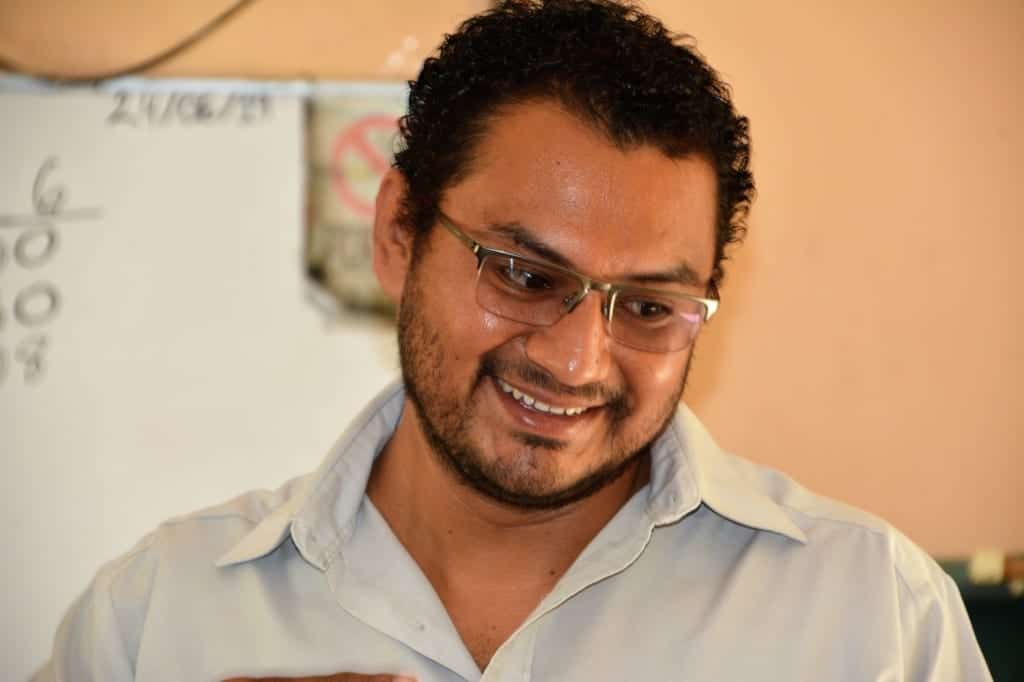
“What you saw today is what we do daily,” he says. “This is our real school.”
His school is a “telesecundaria.” He explained this educational model of instruction, where students watch a lesson on the screen, then the teacher explains the concepts, then they reinforce the lesson with activities in a workbook.
In his classroom, the students are learning fractions, decimals, and percents. They are flipping coins — sun or eagle in Mexico, instead of heads or tails — and rolling dice to determine probabilities. The students refer to him as “profe.”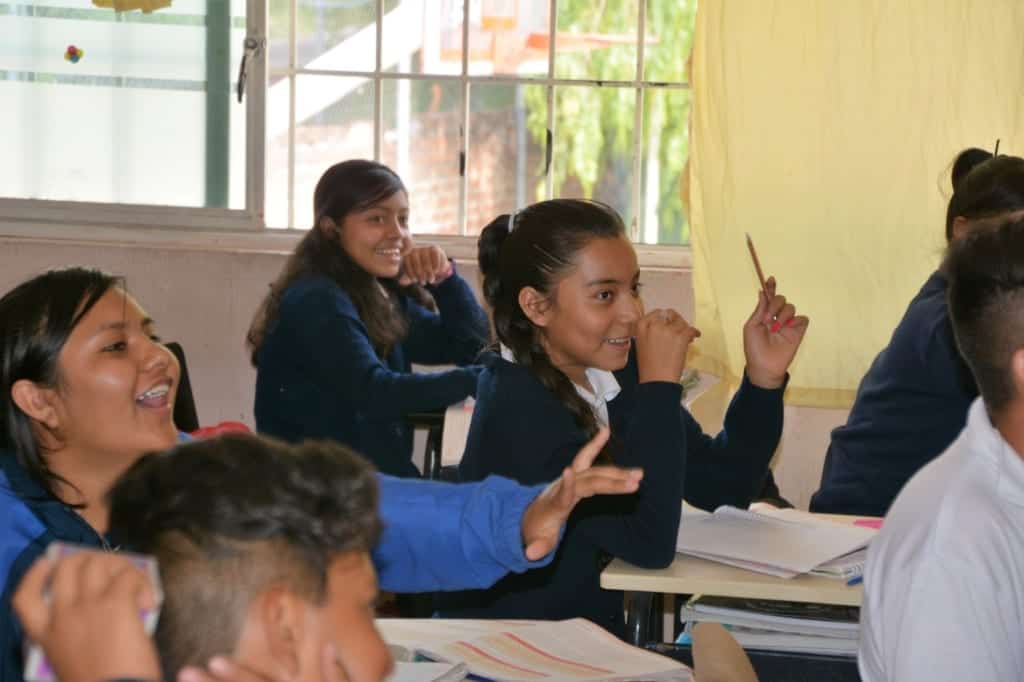
Mora’s students were so excited to talk to Colin Richardson, who teaches AP US History and Sociology at Green Hope High School in Cary, that they found a dictionary to facilitate communication.
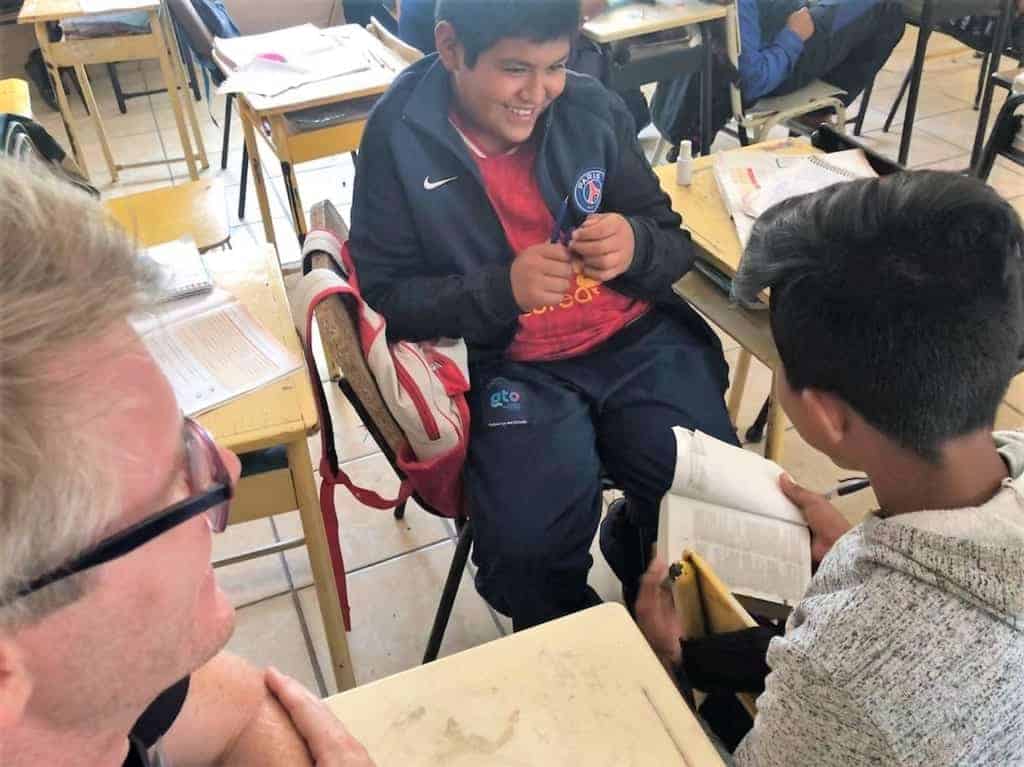
Just eight minutes from Irapuato, Mora notes, “We are one of the schools with the greatest difficulties.”
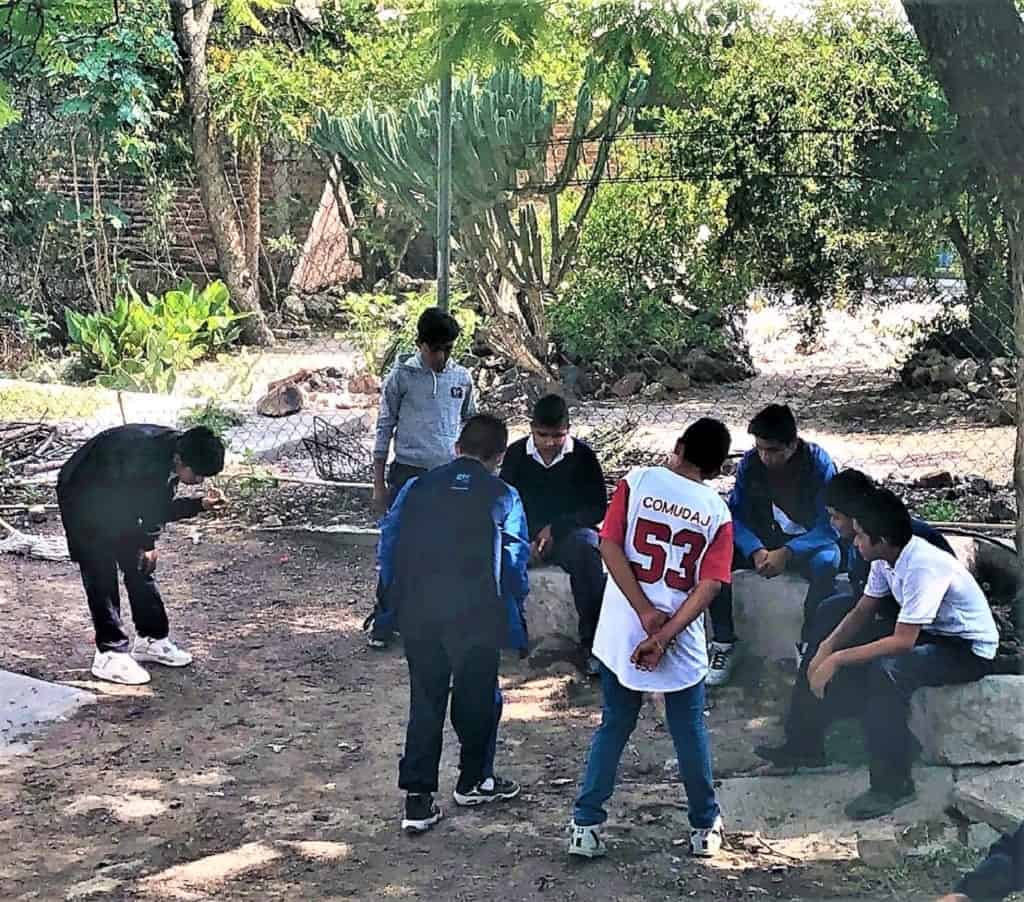
While some of the boys played marbles in the background during recess, parents of the students built a fire and made tortillas by hand for us with fresh cheese. The mother making the tortillas brought her press, which she says she has been using her whole life.
Just outside the school gate, many in the community gathered outside to pass lunch in to the students.
Mora thanked the Fundación for “taking us into account.” His hope and dream? For his students to advance their studies.
The Fundación is embedded in this community. They paid for the Frida Kahlo mural on the front of the school. They built relationships with teenagers who were spending their days hanging out in the streets. They are investing in music and sports for the students. They are conducting gender equity workshops with the mothers. They waterproofed the school.
To help us understand the minds of the students, Cortés wants us to see the community where they live. We meet Jose Luis, the delegate of the community, and he walks us around Taretan.
Cortés’ hope is to pave the roads. She says, “They need to see one example. They need to see it is possible to have a change.”
Paving the roads would mean garbage trucks could come through, and her dream is for the next generation of children growing up in Taretan to have healthy living conditions. Trash began to build up when families “moved away from local foods to fat, fast foods,” says Cortés.
Another dream for the community is to have a footbridge over the creek, which becomes more of a river when it rains and is unpassable on foot, turning the walk to work into a 45-minute haul each way. The teachers note the dystopia-utopian contrast of life in the town and the new, shiny industrial warehouse right across the river.
“It’s amazing what Cortés does in Irapuato, in Guanajuato, in Mexico, and abroad,” says Fernando Fernández, who works with the Secretary of Migration in Guanajuato. “The poverty in this state, I wouldn’t say it is alarming, but it’s still bad. We need NGOs like hers to work here with us.”
Anita López Garcia teaches second grade at the Frida Kahlo School. She wants a Mexico where everyone works and works together so their students can work for their dreams.
Cortés agrees jobs are important, and she reiterates with a whole lifetime of work behind her,
“I think they need hope and dreams.”
Our thanks to Frida Kahlo Telesecundaria and the town of Taretan for walking beside us and sharing your school and community, your hopes and dreams for a brighter future. Our thanks also to the other schools that hosted #GlobalTeachers, including Primaria Miguel Hidalgo, Telesecundaria 492, Primaria Aquiles Serdan, Primaria Vicente Guerrero, and Telesecundaria 379.
Check out this article in local news El Sol de Irapuato about Go Global NC’s program in Mexico.
About Go Global NC
Go Global NC, part of the University of North Carolina System since 1979, designs and manages programs that build the capacity of policy leaders, educators, students, and business and community leaders to enable North Carolina to succeed in a global economy and increasingly interdependent world.
Go Global NC’s Global Teachers Professional Development Program, founded in 1991, provides professional development to K-12 teachers from across North Carolina through an in-depth learning experience about the history, culture, and environment of other countries.
About Via International
Via International is a 501(c)3 non-profit organization with 40 years of experience engaging people to participate in community development initiatives. Their focus is to improve quality of life by providing educational and transformational experiences to connect people to community development work through voluntourism and civic engagement. Via International is Go Global NC’s trusted partner on this program helping to provide unique local access.
Recommended reading

